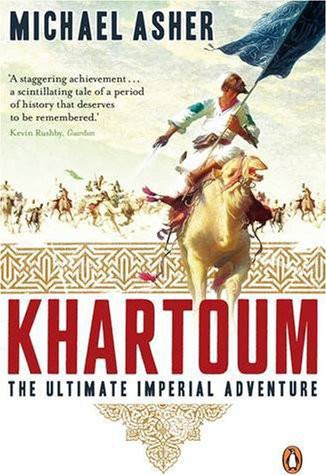
Khartoum: The Ultimate Imperial Adventure PDF
Preview Khartoum: The Ultimate Imperial Adventure
"The British campaigns in the Sudan in the closing years of Queen Victoria's reign are a tale of adventure more thrilling than any fiction. Evoking images of broken squares, jammed Gatling guns, ferocious 'Fuzzy Wuzzies', British gunboats on the Nile, the Camel Corps and the charge of the 21st Lancers at Omdurman, the story also brings together a cast of larger-than-life characters - Gordon, Wolseley, Kitchener, Gladstone, Churchill, the Mahdi, the Khalifa Abdallahi and many others." "The story begins with the massacre of the eleven-thousand-strong Hicks Pasha column at Shaykan in 1883 - an event that sent shock waves through the Western world. Dispatched to evacuate the country, British national hero Charles 'Chinese' Gordon was surrounded in Khartoum by a vast army of dervishes commanded by the Mahdi, the Expected Guide. Gordon held out for months, hoping from day to day to be rescued, but was eventually killed and the city sacked in an orgy of murder, rape and pillage. Wolseley's relief mission, having fought its way across the desert on camels and sailed up the Nile in steamers, arrived two days too late. This caused a national scandal that shocked the Queen and led to the fall of the British government." "The Mahdi's successor, the Khalifa Abdallahi, established the world's first radical Islamic state, becoming, in the process, a paranoid tyrant who ruled by fear. It was left to the brilliant Herbert Kitchener to strike back. Achieving the impossible, he built a railway across the arid Nubian Desert to transport his troops to the final devastating confrontation at Omdurman in 1898." "Desert explorer and author Michael Asher has reconstructed this classic tale of the British Empire's ultimate adventure in vivid detail. Having covered every inch of the ground, and examined all eyewitness reports, he brings to bear new evidence to question several accepted aspects of the story. Far from being the 'lunatic' he was labelled at the time, for instance, Gordon was a brave and gifted man; contrary to popular myth, he did not die a passive martyr's death, but was cut down fighting heroically to the last." "Drawing on an intimate knowledge of Sudanese culture, Asher has produced an account of the Nile campaigns of 1883-98 that, for the first time, examines the story both from the point of view of the British and of the tribes taking part. He sheds new light on the most riveting tale of honour, courage, revenge and savagery of late Victorian times."--BOOK JACKET.
